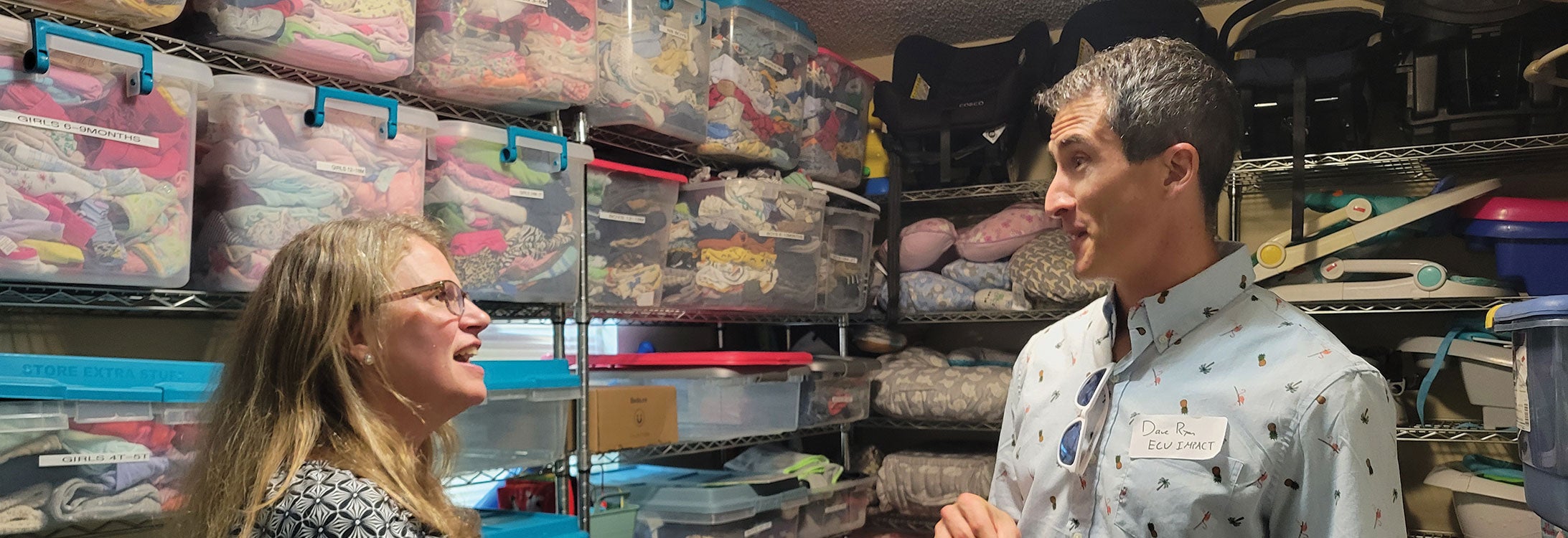Grants to address substance use disorder crisis in eastern N.C.
An ECU team has received a grant of nearly $900,000 from the federal Substance Abuse and Mental Health Services Administration to tackle health disparities and improve substance use disorder outcomes in eastern North Carolina.
This funding aims to improve the training of health sciences students and provide educational opportunities for local providers through the ECU-AMMPeD program, which stands for Amplifying Medical, Midwifery, Nurse Practitioner and Dental Education. Led by Chandra Speight and Sarah Noe from the College of Nursing, the initiative seeks to increase access to substance use disorder treatment in a region plagued by high overdose rates and limited provider capacity.
The grant will facilitate clinical placements and create virtual clinical experiences for students from various health disciplines. The urgency of this initiative is underscored by alarming statistics: In Pamlico County, for example, overdose deaths reach 102 per 100,000 residents, versus the national rate of 32.6 and a state rate of 41.4 per 100,000, according to the N.C. Department of Health and Human Services and the federal Centers for Disease Control and Prevention.
In addition, a separate grant from the Aetna/CVS Foundation, spearheaded by Dr. David Ryan of the Brody School of Medicine, aims to establish North Carolina’s first network of perinatal substance use disorder clinics, addressing maternal health amid rising addiction rates.
Ryan, who specializes in obstetrics and addiction medicine, highlighted the need for effective care for new mothers, who often face barriers to accessing help.
“Mothers go through a pretty traumatic and dramatic experience with childbirth. It’s pretty standard in American health care that after two days we send them home and say, ‘See you in six weeks,’” Ryan said. “Then we talk to them for 15 minutes and say, ‘We’ll see you in a year.’”
Nearly half of the state’s children in foster care are affected by parental substance use, and nearly 40% of maternal deaths are substance-related, he said.
“Not hemorrhage or infection or cardiomyopathy. The study also included homicides and suicide which is 6.5%, which is also shocking,” Ryan said, though he sees glimmers of hope that come from the grants’ investment in vulnerable populations.
The ECU-AMMPeD program includes simulation training to prepare students for working with stigmatized populations.
The collaboration among dental, medical and nursing students will enable a comprehensive approach to substance use disorder treatment, as emphasized by Dr. Mark Moss from the School of Dental Medicine. He noted the necessity of integrating dental care into the broader health care system to combat addiction.
“This training builds the understanding and skills for ways to ask questions and talk about sensitive topics with our patients, as well as knowledge concerning the resources for community engagement and connection with other health professionals who can help us manage these situations,” Moss said.
“Our students are hungry; they want to know how they can be part of the solution,” Ryan said. “If I can educate 100 students, and maybe half of them go on to understand addiction, now we’re influencing thousands upon thousands of people.”
